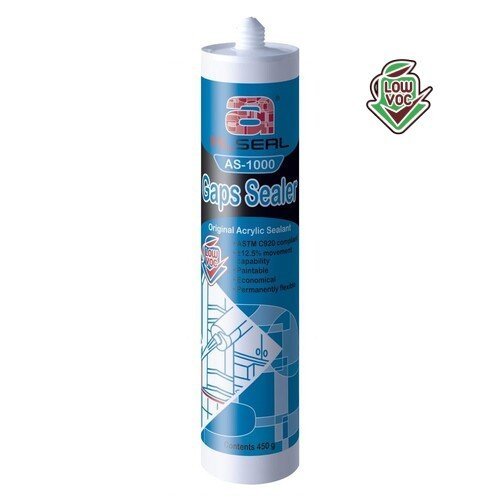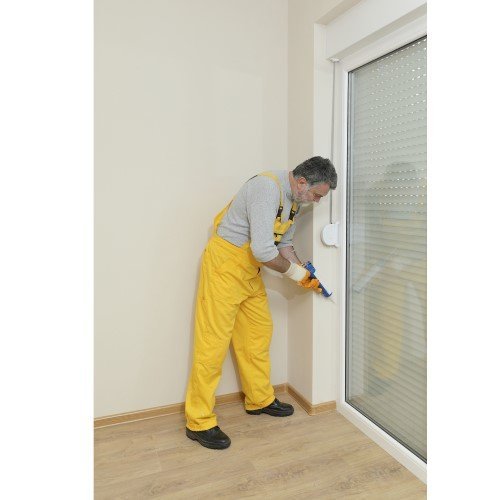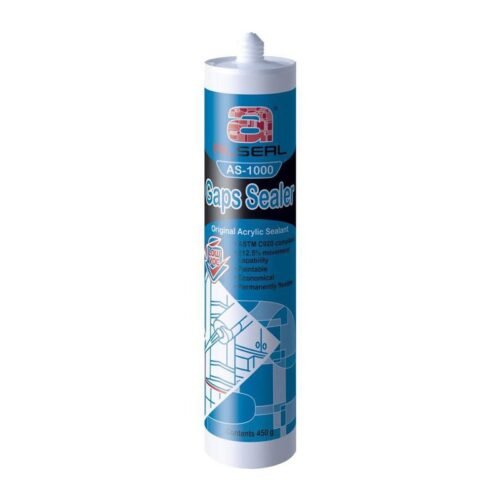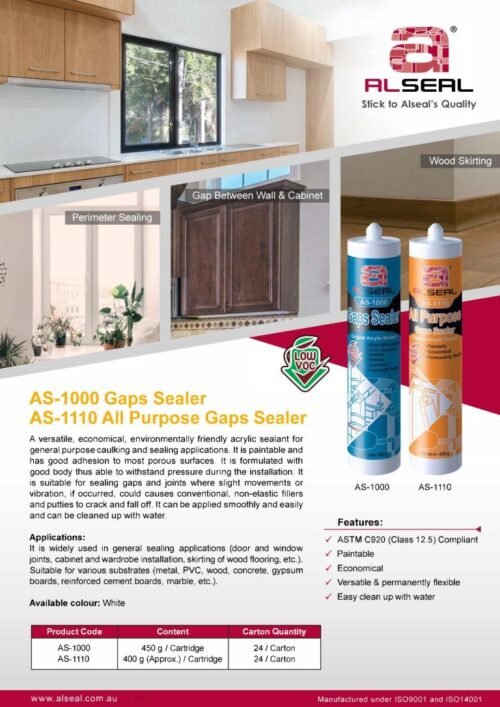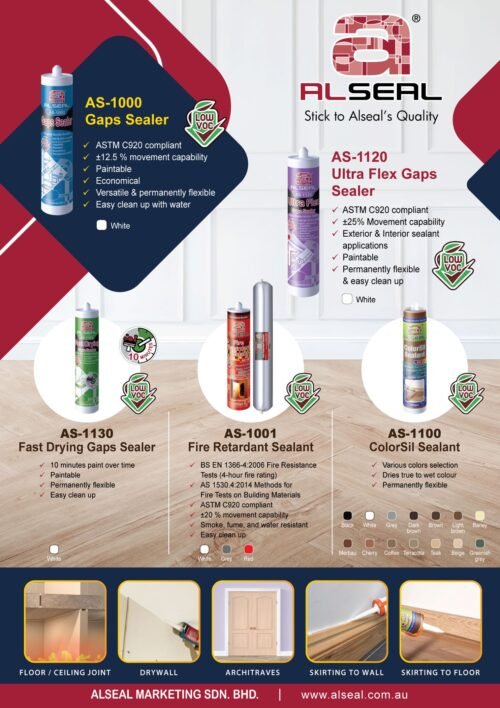Description
Gaps Sealer AS-1000 of ALSEAL is a versatile, economical, environmentally friendly acrylic sealant for general purpose caulking and sealing applications. It is paintable and has good adhesion to most porous surfaces. The sealant is formulated with a good body thus able to withstand pressure during the installation. It is suitable for sealing gaps and joints where slight movements or vibration if occurred, could cause conventional, non-elastic fillers and putties to crack and fall off. It can be applied smoothly and easily and can be cleaned up with water.
AS-1000 Gaps Sealer is designed for general sealing applications such as doors and windows joints, built-in cabinets and wardrobes installation, architraves, skirting boards of wood flooring, etc.
It comes as the main gaps sealer and is suitable for various substrates such as metal, PVC, wood, concrete, gypsum boards, reinforced cement boards, marble, and other building materials.
Features
- ASTM C920 (Class 12.5) Compliant;
- Low VOC compliance (USEPA Method 24);
- Paintable;
- Economical;
- Versatile & permanently flexible;
- Easy clean up with water.
Approvals/ Specifications
Gaps Sealer AS-1000 meets the requirements of the following specifications:
- ASTM C920, Type S, Grade NS, Class 12.5, Use NT, M
- Low VOC – USEPA Method 24 and SCAQMD Method 304-91 under SCAQMD Rule 1168
Usage Instructions
- Surfaces must be clean, dry, and free of dirt, grease, oil, or water.
- Surfaces should clean up using alcohol, M.E.K., or other suitable solvents. Do not use soap or detergent.
- For a neat finish, apply masking tape and remove it before sealant skins over.
- Cut the nozzle at a 45° angle to the desired bead-width and apply to a substrate with a cartridge gun.
- Tool the sealant within 5 minutes of extrusion before it skins.
- Allow drying for one hour before applying water-based paint and 24 hours for oil-based paint.
- Wet sealant is easy to clean up with a damp cloth.
Joint design
- The specified bead size must calculate taking into account the compressive and tensile properties of the sealant relative to the intended joint width due to expansion and contraction.
- The minimum bead size should not be less than 3 mm to ensure movement.
- The ratio of the width and depth of the joint in the sealant structure should be 2: 1.
Limitation
Not recommended for the following applications:
- Below the waterline or permanent immersion in water.
- Areas of movement subject to abrasion.
- Joint movement is more than 12.5%.
- Outdoors, if rain is forecast within two hours of applying the sealant.
Ask about ALSEAL Gaps Sealer AS-1000 in all specialty building materials stores
